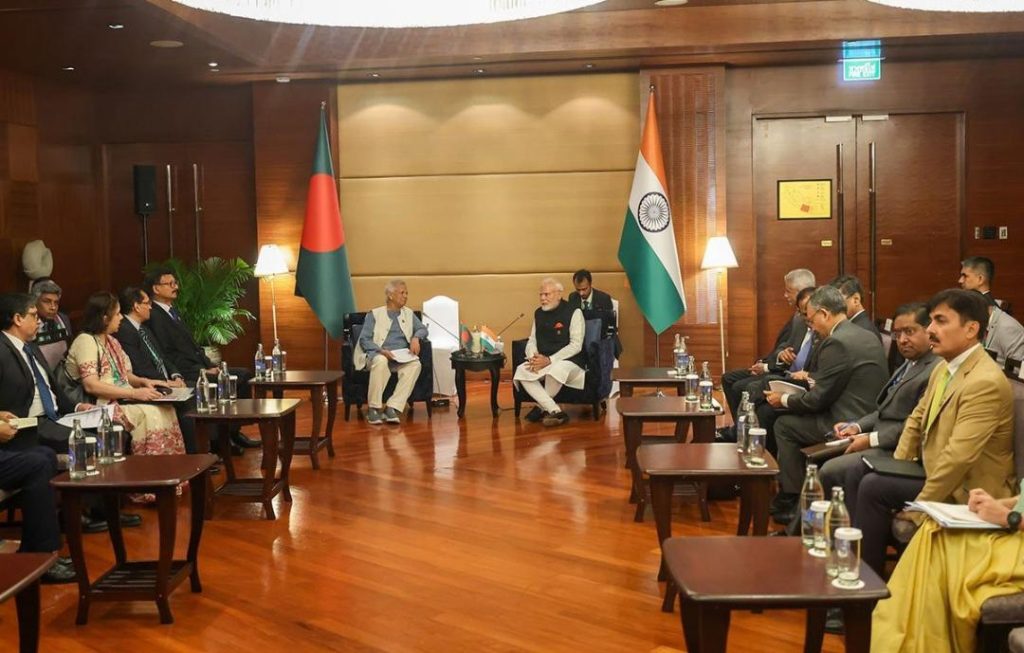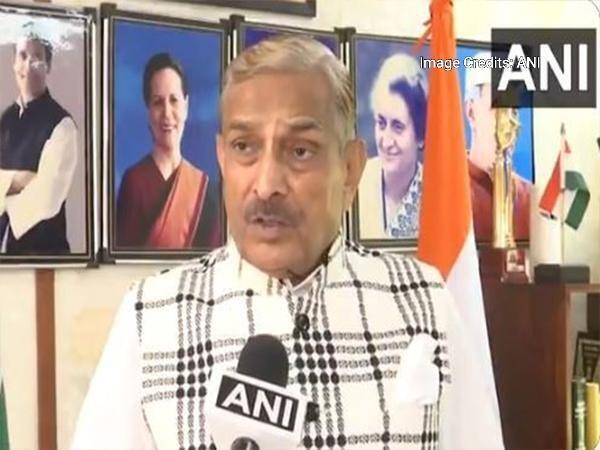
Avoid Rhetoric that Spoils the Environment: PM Modi to B’desh Govt Head Yunus
In a significant diplomatic engagement, Prime Minister Narendra Modi recently met with Muhammad Yunus, the head of the Bangladesh government, in Bangkok. The meeting was marked by a candid exchange of views on various issues, including environmental concerns and minority safety. According to Foreign Secretary Vikram Misri, who accompanied PM Modi to the meeting, the Indian Prime Minister urged Yunus to avoid rhetoric that spoils the environment.
The statement made by PM Modi highlights the importance of responsible communication in addressing environmental issues. Rhetoric often becomes a tool for political grandstanding, rather than a means to engage in constructive dialogue. In the context of environmental degradation, which is a pressing global concern, it is crucial to avoid sensationalist language and instead focus on evidence-based solutions.
Misri’s account of the meeting also touched on India’s concerns regarding the safety and security of minorities in Bangladesh. This is a long-standing issue that has garnered significant attention in recent years. PM Modi’s reiteration of India’s support for a democratic, stable, and inclusive Bangladesh underscores the importance of protecting the rights of all citizens, regardless of their religious or ethnic background.
The meeting between PM Modi and Yunus was a significant diplomatic engagement between the two countries. Bangladesh and India share a long and complex history, marked by periods of cooperation and conflict. In recent years, the two countries have worked together to strengthen their bilateral ties, particularly in the areas of trade, security, and regional cooperation.
India and Bangladesh have a shared responsibility to protect the environment and promote sustainable development. The two countries are home to a diverse range of ecosystems, from the Sundarbans mangrove forests to the Himalayan mountains. These ecosystems play a critical role in regulating the global climate, providing habitat for diverse species, and supporting the livelihoods of millions of people.
However, both countries are facing significant environmental challenges. Deforestation, pollution, and climate change are just a few of the many issues that require urgent attention. In this context, PM Modi’s message to Yunus to avoid rhetoric that spoils the environment is particularly relevant.
Rhetoric can be a powerful tool for mobilizing public opinion and influencing policy decisions. However, when used irresponsibly, it can also perpetuate misinformation, fuel polarization, and undermine efforts to address complex environmental challenges. By avoiding rhetoric that spoils the environment, PM Modi is advocating for a more nuanced and evidence-based approach to environmental communication.
In addition to avoiding rhetoric, India and Bangladesh can work together to promote sustainable development and protect the environment. This can involve partnering on initiatives such as renewable energy projects, sustainable agriculture practices, and eco-tourism development. Both countries can also share best practices and expertise in areas such as waste management and conservation.
The meeting between PM Modi and Yunus also underscores the importance of protecting the rights of minorities in Bangladesh. Minority communities face unique challenges in terms of access to education, healthcare, and economic opportunities. PM Modi’s reiteration of India’s support for a democratic, stable, and inclusive Bangladesh is a welcome message, particularly in light of recent concerns over the safety and security of minorities in the country.
In conclusion, the meeting between PM Modi and Yunus was a significant diplomatic engagement that highlighted the importance of responsible communication in addressing environmental challenges. By avoiding rhetoric that spoils the environment, PM Modi is advocating for a more nuanced and evidence-based approach to environmental communication. India and Bangladesh can work together to promote sustainable development and protect the environment, while also protecting the rights of minorities and promoting a more inclusive and democratic society.






